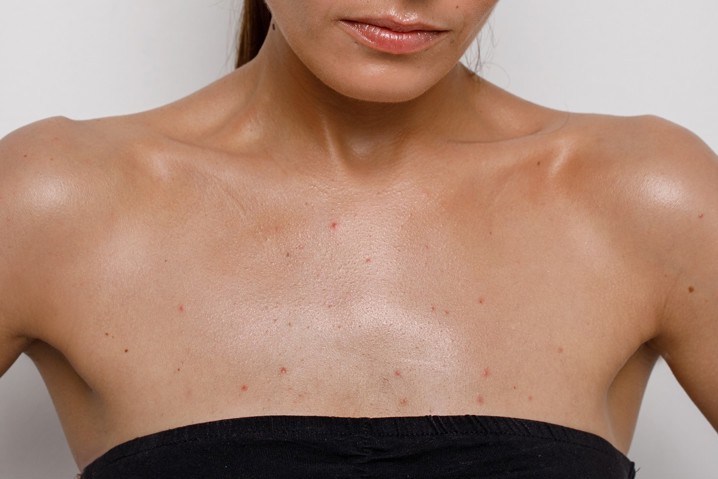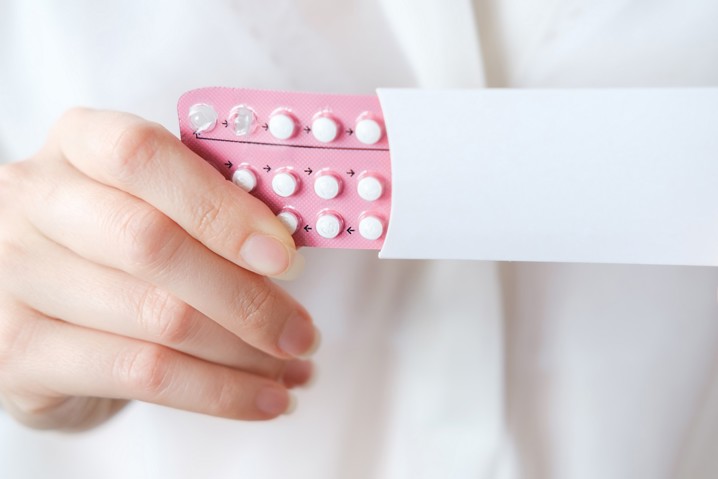

When is the right time to visit a gynecologist?
Although acne is considered a dermatological problem, going to the gynecologist is one of the examinations that tries to find the reason and the appropriate treatment in dealing with acne.
Acne on the face and body is certainly not a pleasant occurrence. Although the problems caused by acne are mostly of an aesthetic nature, their appearance can significantly affect a person’s self-confidence, socialization and the development of a bad opinion about their own appearance.
Although acne is considered a dermatological problem, going to the gynecologist is one of the examinations that tries to find the reason and the appropriate treatment in dealing with acne. The presence of acne is possible at any stage of life.
Very often, the appearance of acne is caused by increased secretion of androgens, i.e. male sex hormones during puberty. Increased secretion of hormones stimulates greater production of sebum from the sebaceous glands, and it is in the composition of sebum that the main culprit for the development of acne.
Sebum, a fatty substance, is a component of sebum, and the lack of vitamin E makes this compound more prone to oxidation. Too much sebum will make the sebum thicker , making it more difficult to excrete.
Instead of sebum being secreted normally through the pores, increased sebum production (hyperkeratosis) will cause them to become clogged. The skin will become thicker, and all the sebum will linger under the clogged pores.
In an attempt to expel sebum on its own, the affected part of the skin enters the so-called keratolytic action , a process by which the skin softens and thins to excrete accumulated amounts of sebum.
As a result of the contact of sebum with air, easily recognizable black dots, better known as blackheads, appear. Over time, the openings where the oxidation of sebum occurs become fertile for the entry of bacteria (Propionibacterium acnes) and the development of infection.
People whose hormones cause increased sebum secretion are more prone to such infections, and they are the reason for the formation of acne.
Acne in women can occur as a result of various hormonal changes that are typical of a certain age or life circumstances in which a woman finds herself.

The behavior of hormones varies from woman to woman, and the following life stages can stimulate their increased secretion and cause the appearance of acne:
Puberty is certainly the period of life when hormones begin to take a more serious role over a person’s growth, development and change, mentally or physically.
Such changes can also be reflected in the appearance of acne, and in girls, they can be somewhat more pronounced due to hormonal imbalances caused by the first menstrual periods. The secretion of hormones can cause increased sebum production, oily skin, and thus the development of acne.
The appearance of acne is not uncommon during pregnancy.
The appearance of acne is common in women in the period of menopause; Due to the drop in estrogen levels and higher testosterone levels, sebum is produced, oily skin and eventually the development of acne.
Acne can also be present regardless of hormone therapies that reduce the side effects of menopause.
Hormonal changes can also be triggered by a new therapy, a different drug manufacturer, or changes in the regularity of drug consumption. The resulting oscillations can trigger the development of acne.
If acne is present regardless of regular facial care, or if you notice that its appearance can fluctuate during a certain period of the month, for example before menstruation, it is time for a gynecological examination due to possible hormonal acne.
Going for a gynecological examination is recommended for all women who have acne problems. In addition to the classic gynecological examination with taking a detailed medical history, the gynecologist will assess whether it is necessary to determine the hormonal status of sex hormones.
In the case of an evident finding of hormonal imbalance, one of the most common forms of treatment is therapy with contraceptive pills.
Birth control pills modulate the secretion of all hormones, and consequently reduce the secretion of androgens that are responsible for hyperandrogenemia and increased production of sebum and oily skin suitable for the development of blackheads and acne.
However, the appearance of acne does not necessarily have to be related to hormonal disorders. These can occur as a result of other factors (stress, diet, etc.). That is why it is important to go for a gynecological examination and listen to professional opinions.
Acne examination, in addition to the gynecologist’s examination, consists of consultations with a dermatologist, examination of the face, neck and back.
When talking to your doctor, you will explain when you started to see acne, how it affects your quality of life, and whether you have already met any of the treatments related to these problems.
During the interview, the dermatologist may ask you questions about previous medication consumption, allergies and plans for an imminent pregnancy. Namely, such information is needed in order to provide appropriate therapy, which often includes the use of birth control pills.
Examination of the head, neck and back are part of the dermatological examination. It is in these areas that most acne is formed. Based on the size, build, and quantity in a particular area, our experts will assess the situation and provide appropriate therapy.
Birth control pills have been used for some time in regulating hormonal disorders in women. Their action is based on the normalization of the pattern of hormone secretion, and thus indirectly the reduction of androgen secretion.
Although it is normal for women to produce small amounts of testosterone, it is almost negligible in relation to estrogen and progesterone levels.
In women who have a problem with acne, there is almost always a problem with the menstrual cycle, which is irregular, accompanied by oligo or amenorrhea. Cycle irregularities are the result of an imbalance of sex hormones and a more pronounced effect of androgens.
As a result of such action, there is a higher production of sebum, oily skin and finally the appearance of acne. It is the therapy with birth control pills that provides the correct hormonal balance that leads to the spontaneous disappearance of acne.
By coming for a gynecological examination, our team of experts can prescribe some kind of contraceptive. The most common are those that also have antiandrogenic effects such as YAZ tablets. It is an estrogen-based birth control pill called drospirenone in conjunction with progestin.

In addition to the examination, the gynecologist will have an open discussion with you about the regularity of your cycle, previous infections (if you have had them), but also possible pregnancy planning. When all factors are taken into account, it will be possible to provide adequate therapy and treatment with birth control pills.
There are other solutions for acne that, together in conversation with a dermatologist, we prescribe to our patients.
Topical therapy includes direct skin care such as washing with warm water, using acidic or neutral soap, and rinsing with benzoyl peroxide or an alcohol solution of salicylic acid.
Sulfur-based pastes and liquid foundations are the best solution for mild inflammation that occurs overnight.
In the case of more frequent occurrences of acne, the dermatologist may assign you the use of antibiotics within 12 weeks.
The therapy also includes preparations based on vitamin A (retinoids) that rejuvenate, regenerate and change the texture of the skin. This type of preparation is very effective, but often causes serious side effects, which is why wear and tear must be carried out under the supervision of a doctor.
Some of the side effects of this therapy can be:
In addition to the use of retinoids, acne can also be treated with so-called sebosuppressants, but due to the suppression of the action of androgens , they can only be attributed to women.
In the most severe cases, when neither a change in hygiene nor a pill helps, surgical removal is considered one adequate solution for acne.
Treatment with laser equipment or chemicals will peel off the surface layers of the skin and open the pores so that acne can no longer form.
As we stated earlier, although you may have the best intentions in getting rid of acne, their appearance is due to hormone instability, which means that solutions such as diet, the use of vitamins or proper hygiene can only alleviate, but not completely eliminate your acne problem.
However, this does not mean that you should give up on proper facial hygiene and skin care. The following tips can make it easier for you to deal with acne and reduce its effects:
At the Lohuis Filipović Polyclinic, we have gathered a team of experts for whom treating acne is part of everyday life. Thanks to modern equipment and access, our centers for gynecology and dermatology have made sure that you get rid of acne on your face, neck and back once and for all.
Whether it is a surgical procedure, antibiotic therapy or diagnostic examinations, everything is ready to provide the best treatment in our Polyclinic.
Make an appointment today by calling +3851 2444 646 or filling out the online form.
The main goal of LF Polyclinic is to improve the quality of life and health of our clients by providing them with top-notch healthcare services.